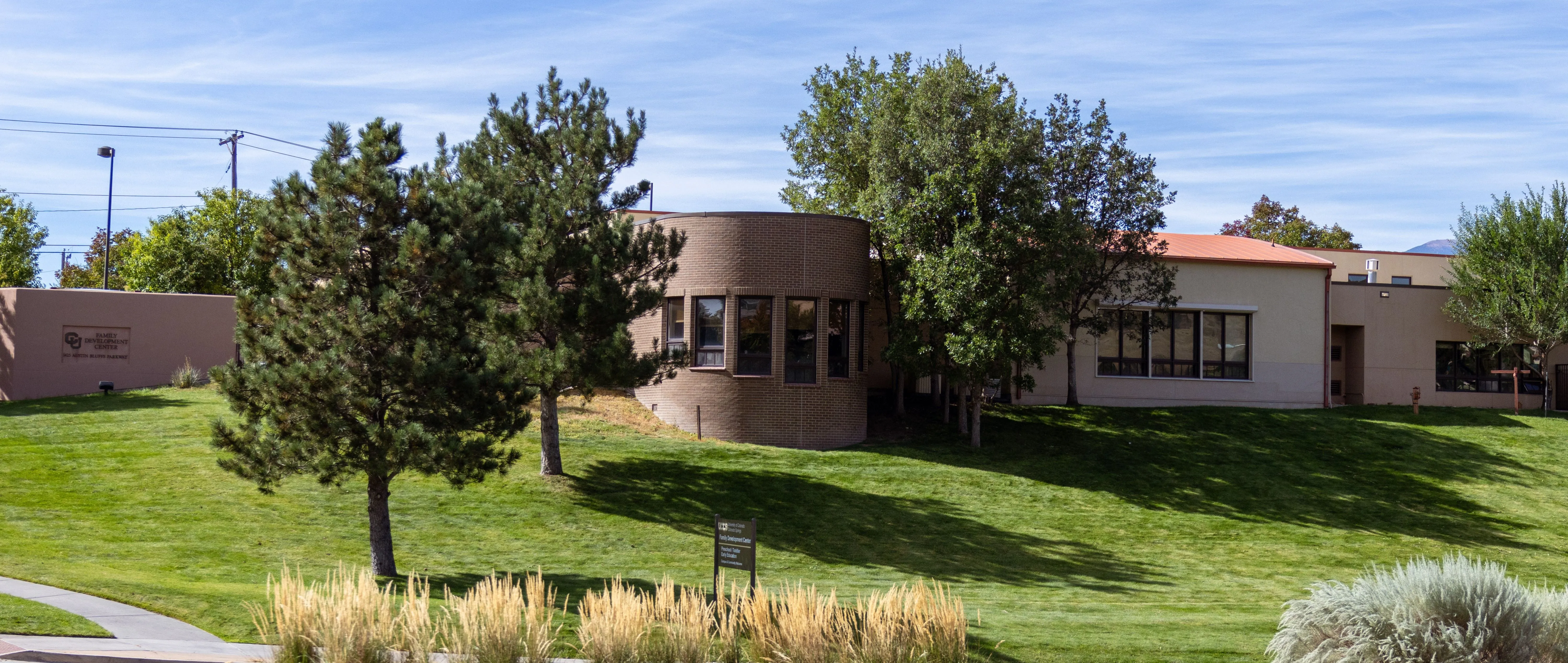
Transition
Transition Program
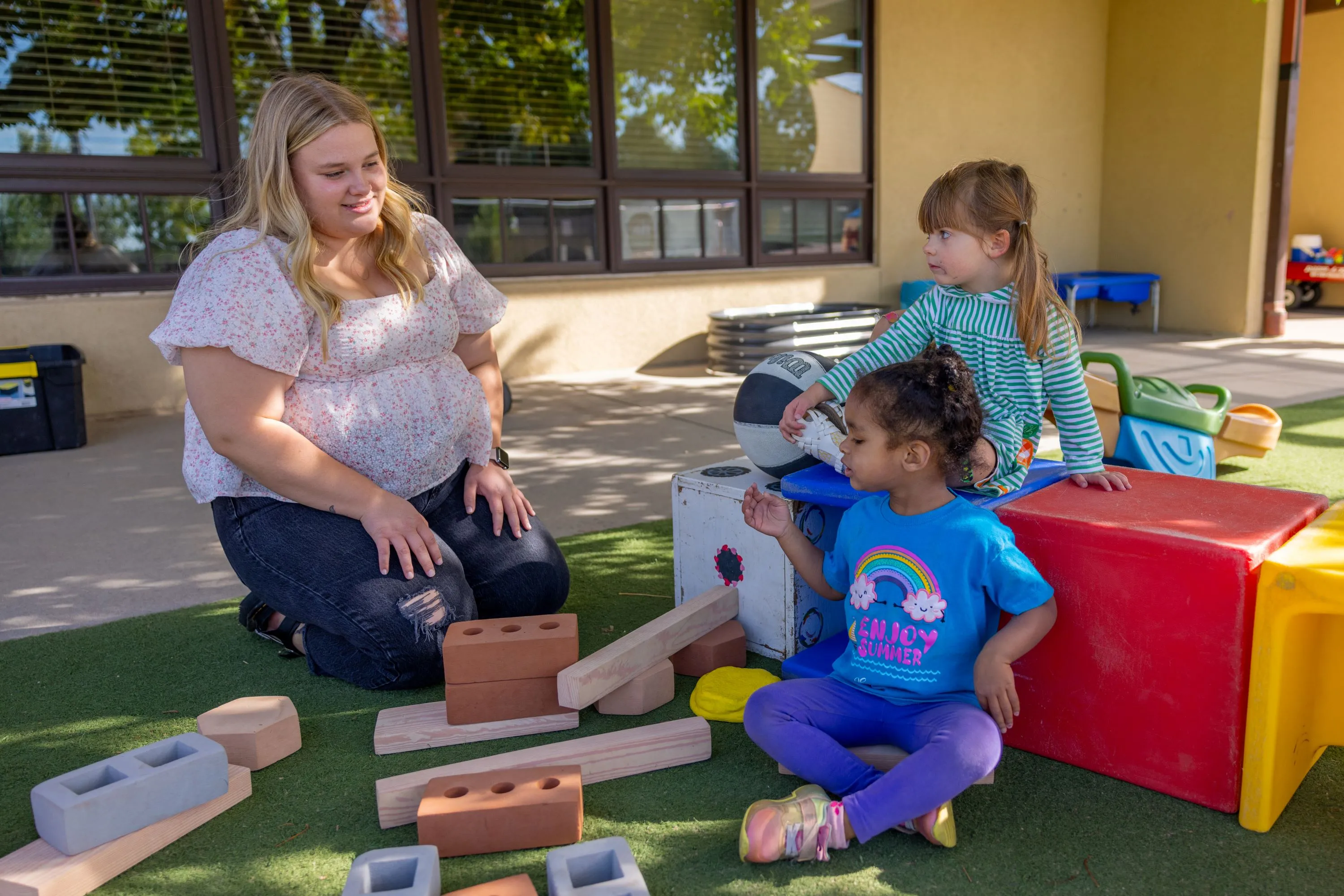
At the Family Development Center, we embrace the transition years as a time of wonder, exploration, determination, and skill-building. Our developmentally appropriate curriculum is thoughtfully designed to nurture each child's growth and learning during this exciting stage.
This period marks a shift as children begin to focus on tasks for longer periods, demonstrate growing independence, and express their will with determination. Language blossoms as children engage in social play, creative activities, and imaginative role-playing.
Children in transition develop essential self-help skills such as toileting, hand washing, dressing, and cleaning up after play. They also begin serving themselves and eating independently. By the time they are ready for preschool, children exhibit greater independence, storytelling abilities, and increasingly confident interactions with peers.
What your child will be doing
Activities and Routines
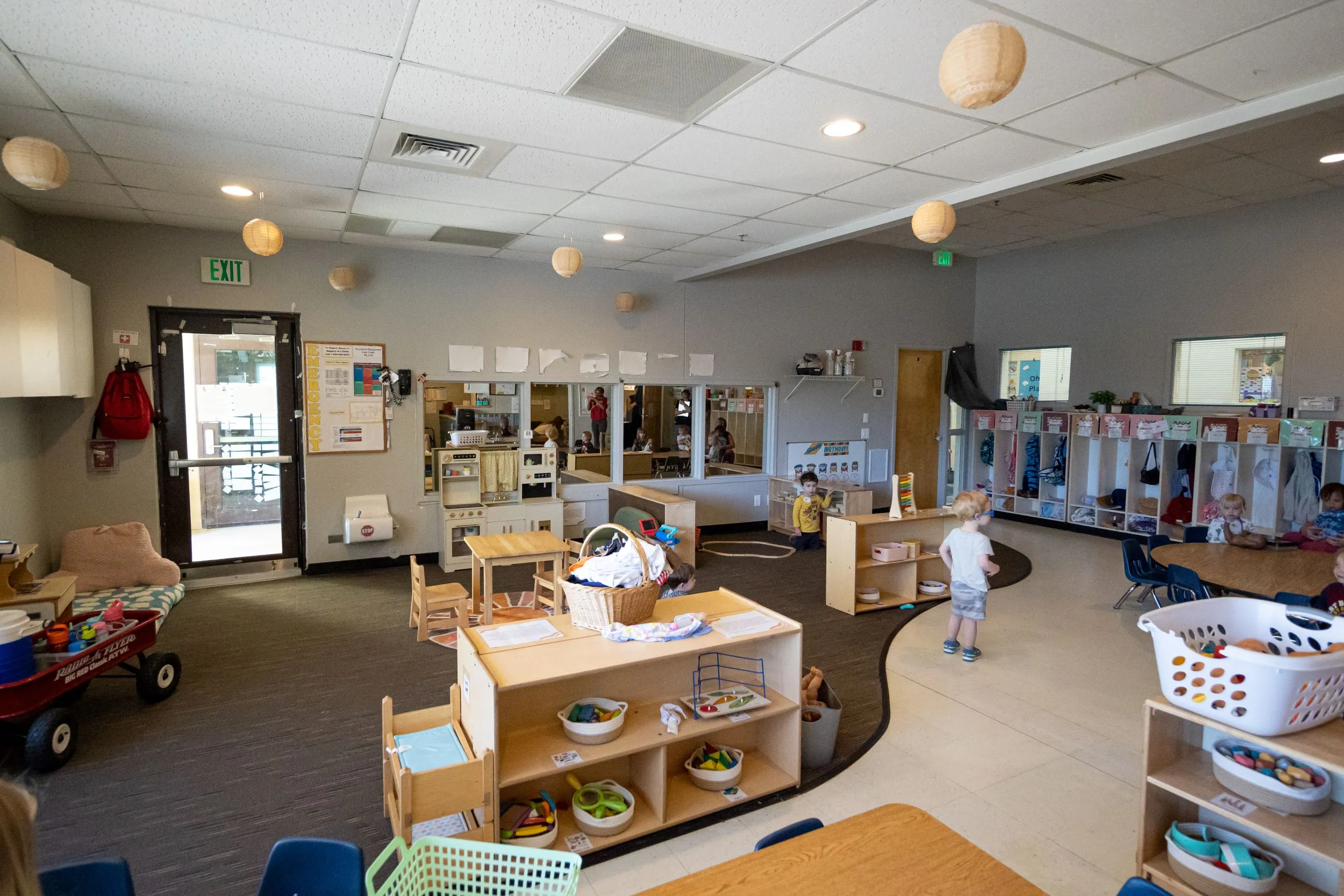
Individual Exploration and Play: Arrival and free-choice time offer opportunities for activities like blocks, puzzles, art, music, book browsing, and socialization.
Learning Centers: Children participate in sensory play, science exploration, dramatic play, art, and literacy or numeracy activities.
Care and Rest: Meal times, personal care routines, and rest time encourage healthy eating, hygiene habits, and self-regulation while providing downtime.
Toddler Ratios
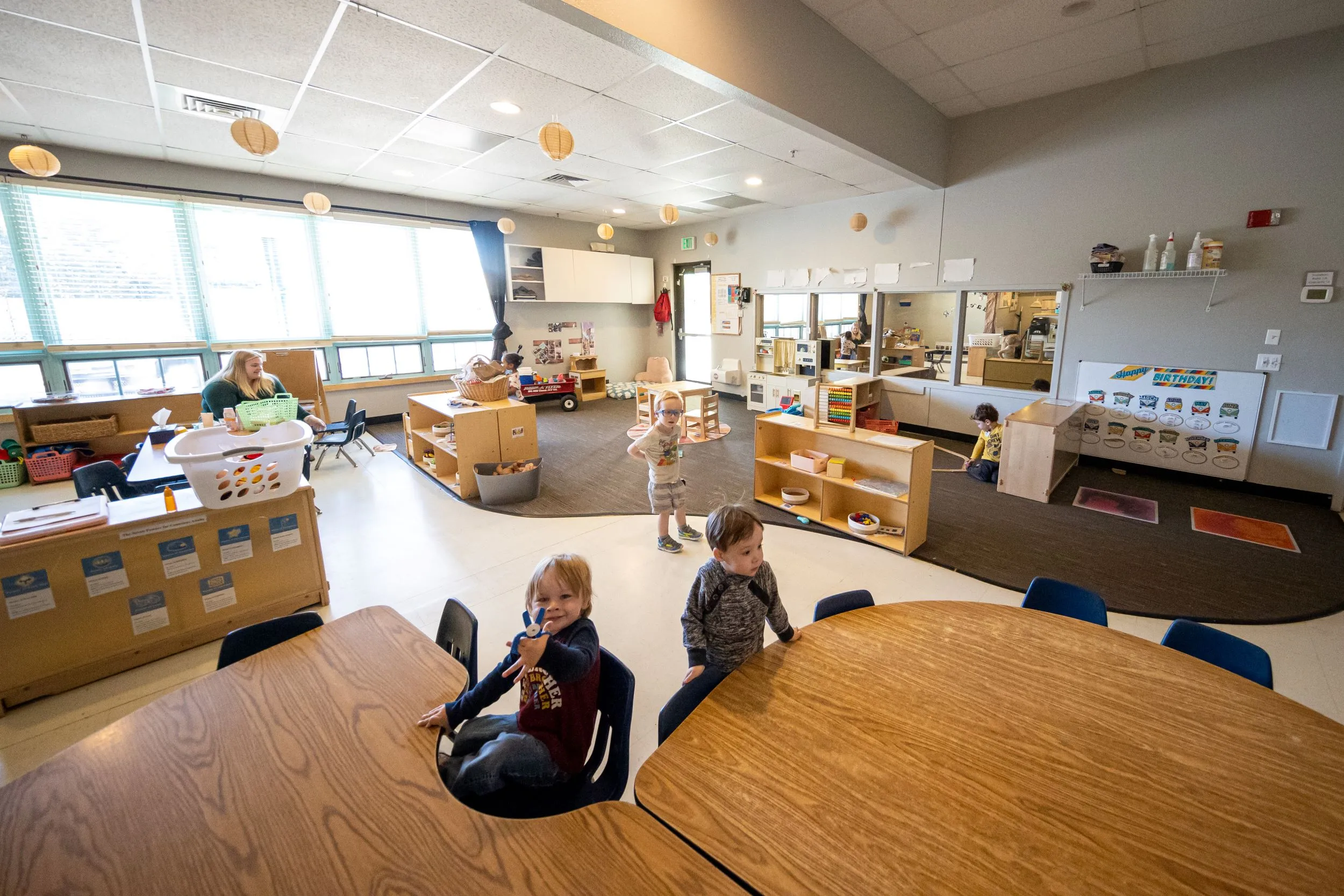
Ages: 2.5 - 3 years old (or until Preschool Year starts)
Typical Transition Teacher to Student Ratio: 1:5
Children do not need be potty trained
Physical and Social Development
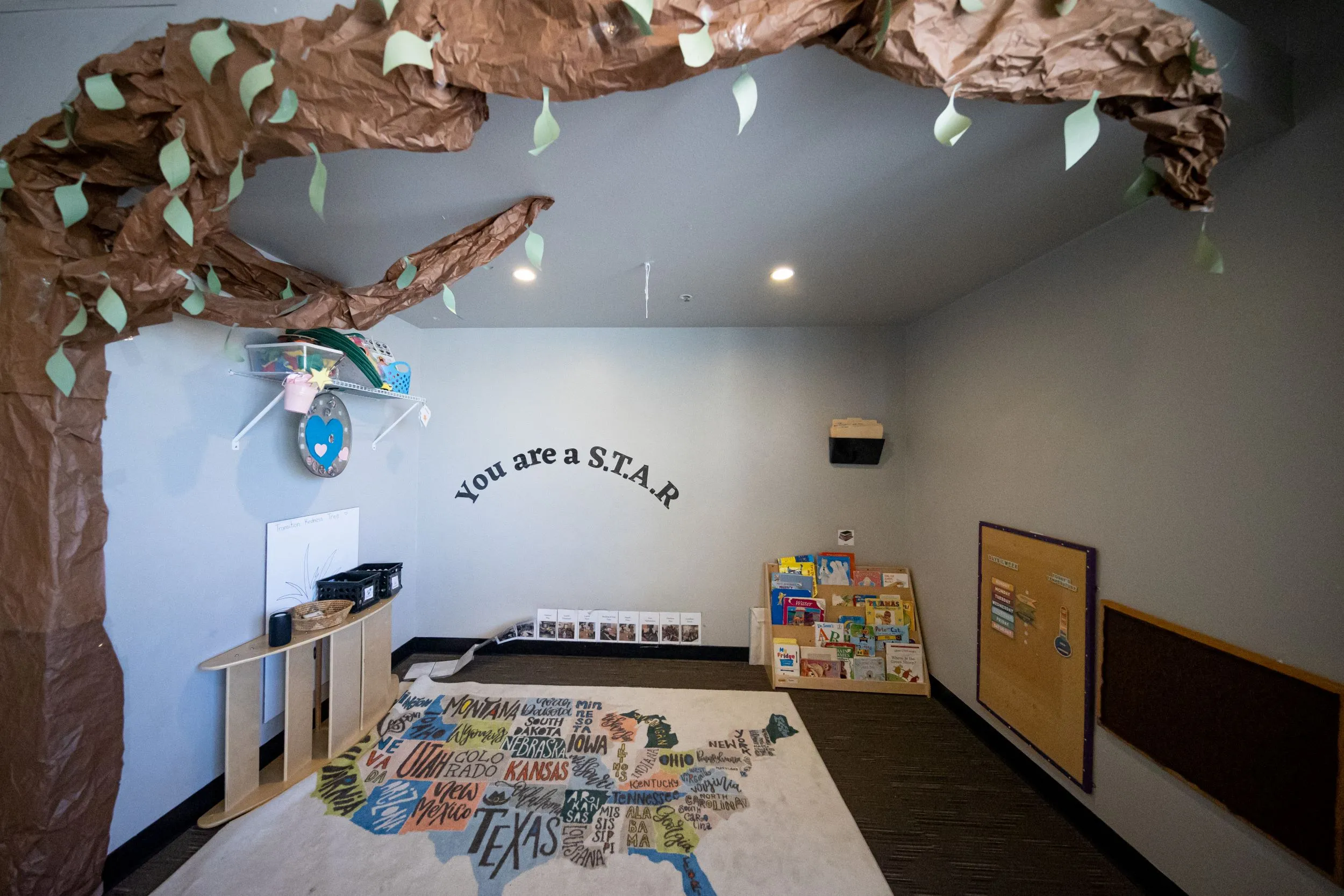
Physical and Creative Expression: Outdoor play and music/movement sessions develop motor skills, creativity, and social connections through running, dancing, singing, and more.
Group Engagement: Circle time features stories, songs, puppets, and poetry to enhance language skills and understanding of the world.
Guidance and Emotional Regulation: Children learn to communicate their needs, build self-esteem through constructive play, and develop positive social interactions in a supportive environment.